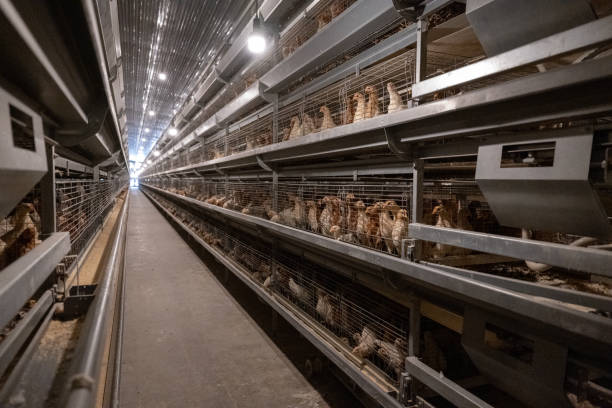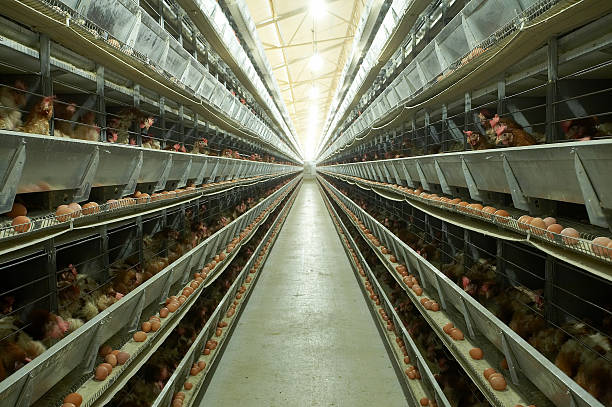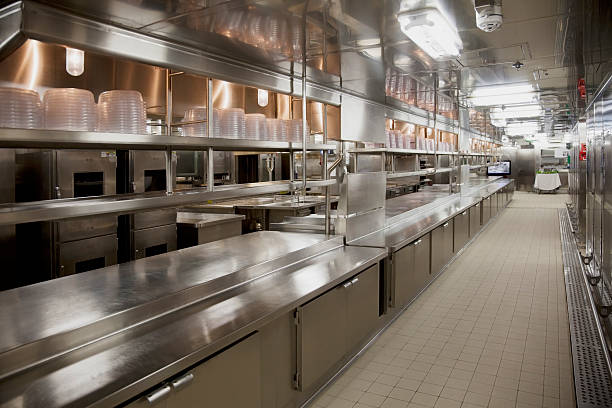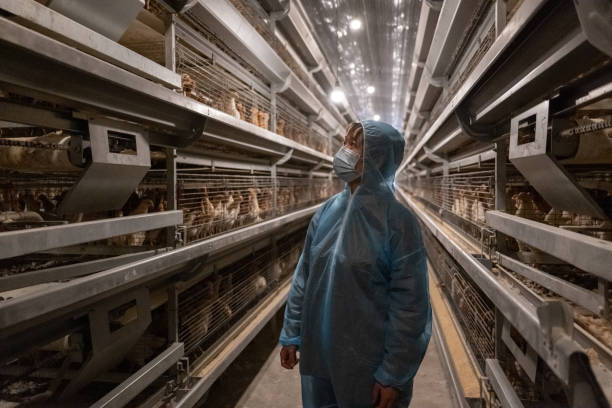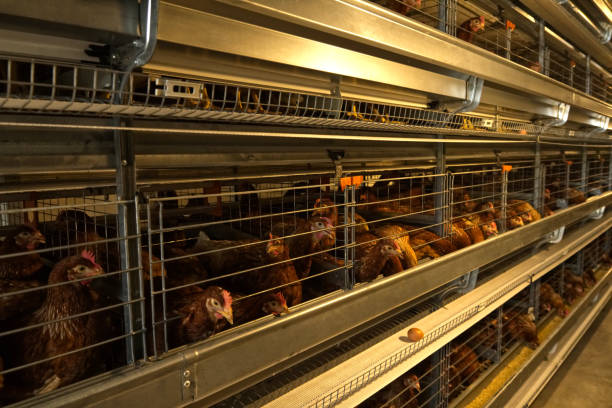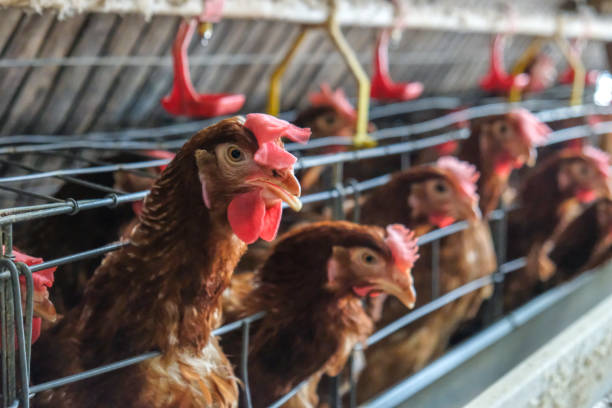Boosting Poultry Yields in Africa with Battery Cage Farming: Benefits and Best Practices
Boosting Poultry Yields in Africa with Battery Cage Farming: Benefits and Best Practices
Africa’s poultry industry is on the cusp of a revolution, and battery cage farming is playing a significant role in driving this transformation. As the demand for poultry products continues to rise across the continent, the need for efficient and scalable farming methods becomes increasingly vital. Battery cage farming, when implemented responsibly and effectively, offers a compelling solution for boosting poultry yields, improving productivity, and contributing to food security. This article delves into the benefits of battery cage farming in Africa, explores best practices for implementation, and considers the key factors for achieving sustainable success.
The Rising Demand for Poultry in Africa: A Call for Efficient Farming
Africa’s population is booming, and with it, so is the demand for protein-rich foods. Poultry, particularly chicken and eggs, are becoming increasingly popular due to their affordability, nutritional value, and versatility. Traditional free-range farming methods, while valuable, often struggle to meet the growing demand, leading to higher prices and potential food shortages. This is where battery cage farming steps in, offering a modern and efficient approach to poultry production capable of scaling up to meet these needs.
Understanding Battery Cage Farming: A Modern Approach
Battery cage farming involves raising poultry in small, enclosed cages, typically arranged in rows within a large shed. Each cage houses several birds, providing them with a controlled environment that allows for efficient feeding, watering, and waste management. While the concept has faced criticisms regarding animal welfare, modern battery cage systems are designed with improved features to enhance bird comfort and well-being. These include larger cage sizes, better ventilation, and enrichments to promote natural behaviors.
Benefits of Battery Cage Farming in Africa
The adoption of battery cage farming in Africa offers a range of significant advantages for poultry farmers and the broader economy:
Increased Productivity: Battery cage farming dramatically increases the number of birds that can be raised in a given space compared to traditional farming methods. This higher stocking density translates directly into increased egg production and meat yields, allowing farmers to meet the growing market demand.
Improved Feed Conversion Ratio: In a controlled battery cage environment, birds expend less energy roaming and foraging, leading to a more efficient feed conversion ratio. This means they gain more weight or produce more eggs for the same amount of feed, resulting in lower feed costs and higher profitability for farmers.
Enhanced Disease Control: Battery cage systems often incorporate biosecurity measures that minimize the risk of disease outbreaks. The enclosed environment reduces contact with external pathogens, and regular cleaning and disinfection protocols help prevent the spread of infections. This translates into healthier birds, reduced mortality rates, and lower veterinary expenses.
Reduced Labor Costs: Automation plays a key role in battery cage farming, reducing the need for manual labor. Automated feeding, watering, and waste removal systems streamline operations, allowing farmers to manage larger flocks with fewer workers. This frees up labor for other essential tasks, such as marketing and financial management.
Improved Egg Quality: Battery cages protect eggs from dirt, pests, and breakage. Automated egg collection systems ensure that eggs are gathered quickly and efficiently, minimizing contamination and preserving their quality. This leads to higher prices for farmers and safer, more appealing eggs for consumers.
Consistent Product Supply: Battery cage farming provides a year-round, consistent supply of poultry products, regardless of weather conditions or seasonal variations. This predictability is crucial for meeting the demands of retailers, processors, and consumers, ensuring a stable market.
Better Management: Battery cage setups make it easier to observe each bird and take prompt action when you see abnormalities. This allows farmers to monitor the health of the birds and reduce losses in time.
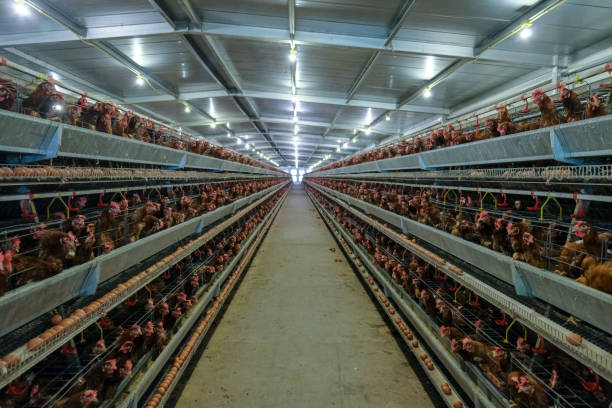
Best Practices for Implementing Battery Cage Farming in Africa
To maximize the benefits of battery cage farming and ensure its sustainability, it’s essential to follow best practices in all aspects of the operation. These practices encompass animal welfare, biosecurity, environmental management, and economic viability.
Choosing the Right Cage System: Select a battery cage system that meets internationally recognized animal welfare standards. Consider the cage size, ventilation, lighting, and enrichment features. Ensure that the cages provide adequate space for birds to move comfortably, stand, sit, turn around, and stretch their wings.
Providing a Comfortable Environment: Maintaining a comfortable environment within the poultry house is crucial for bird health and productivity. Proper ventilation is essential to remove stale air, control humidity, and prevent the build-up of harmful gases. Adequate lighting is also important for stimulating egg production and regulating bird behavior.
Implementing Strict Biosecurity Measures: Biosecurity is critical for preventing disease outbreaks in battery cage systems. Implement strict protocols for controlling access to the farm, disinfecting equipment, and managing waste. Regularly monitor birds for signs of illness and promptly isolate and treat any affected individuals.
Ensuring Proper Nutrition and Hydration: Provide birds with a balanced diet that meets their nutritional requirements. Use high-quality feed that is free from contaminants. Ensure that birds have continuous access to fresh, clean water. Regularly monitor feed and water consumption to identify any potential problems.
Managing Waste Effectively: Proper waste management is essential for preventing environmental pollution and reducing the risk of disease transmission. Implement a system for collecting, storing, and disposing of poultry manure in an environmentally responsible manner. Consider using manure as fertilizer or converting it into biogas.
Training and Education: Invest in training and education for farm workers to ensure they have the knowledge and skills necessary to manage battery cage systems effectively. Train workers on animal welfare, biosecurity, hygiene, and other important aspects of poultry farming.
Monitoring and Evaluation: Regularly monitor and evaluate the performance of the battery cage system. Track key indicators such as egg production, feed conversion ratio, mortality rates, and environmental conditions. Use this data to identify areas for improvement and make adjustments to the management practices.
Humane Handling: Training professionals on the humane handling of birds can reduce stress. Minimize handling whenever possible to alleviate stress and prevent injuries.
Ventilation: Good ventilation is important for helping birds feel comfortable. It is important to make sure your chickens get enough air and light.
Addressing Animal Welfare Concerns
Battery cage farming has faced criticism regarding animal welfare, particularly concerning the restricted movement and lack of enrichment for birds. It is crucial to address these concerns by implementing best practices that prioritize animal well-being.
Cage Size and Density: Provide adequate space for birds to move comfortably and exhibit natural behaviors. Avoid overcrowding, which can lead to stress, aggression, and increased disease susceptibility.
Enrichment Features: Introduce enrichment features to the cages, such as perches, scratching pads, and dust baths. These features can help stimulate natural behaviors and improve bird welfare.
Lighting and Ventilation: Provide adequate lighting and ventilation to ensure a comfortable and healthy environment for birds. Avoid exposing birds to excessive noise or bright light, which can cause stress.
Humane Handling Practices: Train workers on proper handling techniques to minimize stress and injury to birds. Handle birds gently and avoid rough or aggressive movements.
Economic Considerations for Battery Cage Farming in Africa
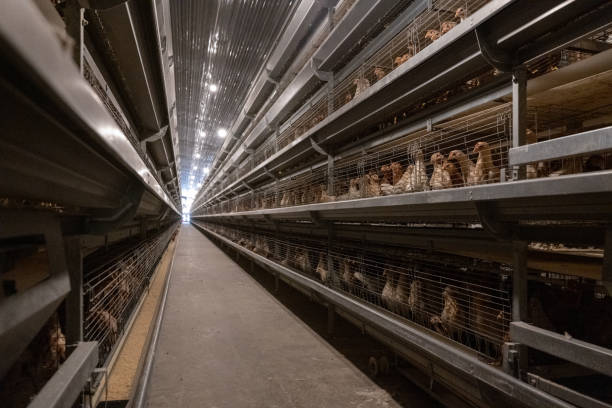
While battery cage farming offers numerous benefits, it’s essential to consider the economic aspects to ensure long-term sustainability.
Initial Investment Costs: Battery cage systems require a significant upfront investment in infrastructure, equipment, and birds. Carefully evaluate the costs and benefits before making a decision.
Operating Costs: Operating costs include feed, water, labor, electricity, veterinary expenses, and waste management. Optimize these costs by implementing efficient management practices.
Market Prices: Monitor market prices for poultry products to ensure that you are receiving a fair price for your eggs or meat. Explore opportunities to add value to your products through processing or marketing.
Government Support: Seek out government programs and incentives that support poultry farming. These may include subsidies, loans, or technical assistance.
The Role of Technology in Advancing Battery Cage Farming
Technology is playing an increasingly important role in advancing battery cage farming in Africa. Innovations in automation, data analytics, and precision farming are helping farmers improve efficiency, reduce costs, and enhance animal welfare.
Automated Feeding and Watering Systems: Automated systems deliver feed and water to birds accurately and efficiently, reducing labor costs and minimizing waste.
Environmental Control Systems: These systems regulate temperature, humidity, and ventilation within the poultry house, creating an optimal environment for bird health and productivity.
Data Analytics and Monitoring: Sensors and data analytics tools collect and analyze data on bird performance, environmental conditions, and resource consumption. This data can be used to identify areas for improvement and optimize management practices.
Precision Farming Techniques: Precision farming techniques use sensors and data analytics to tailor management practices to the unique needs of individual birds or groups of birds. This can lead to improved productivity, reduced costs, and enhanced animal welfare.
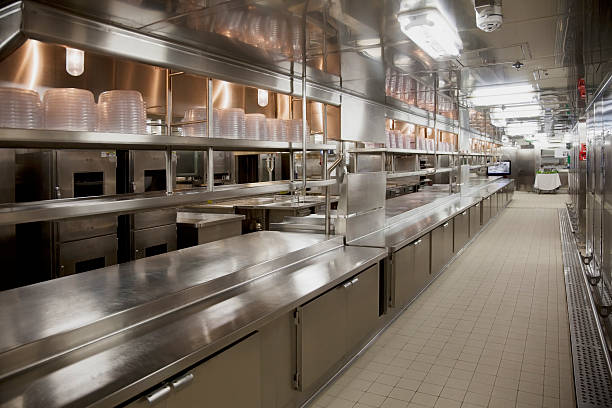
The Future of Poultry Farming in Africa
Battery cage farming has a significant role to play in shaping the future of poultry farming in Africa. By adopting best practices, embracing technology, and addressing animal welfare concerns, farmers can unlock the full potential of this efficient and scalable farming method. As demand for poultry products continues to grow, battery cage farming will be increasingly important for ensuring food security, creating economic opportunities, and improving the livelihoods of farmers across the continent. With responsible implementation and a commitment to sustainability, battery cage farming can contribute to a thriving and resilient poultry industry in Africa. Consider all factors to maximize profits.



